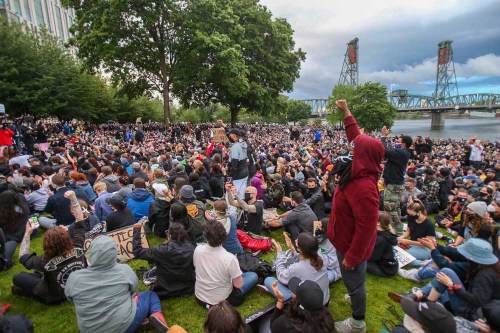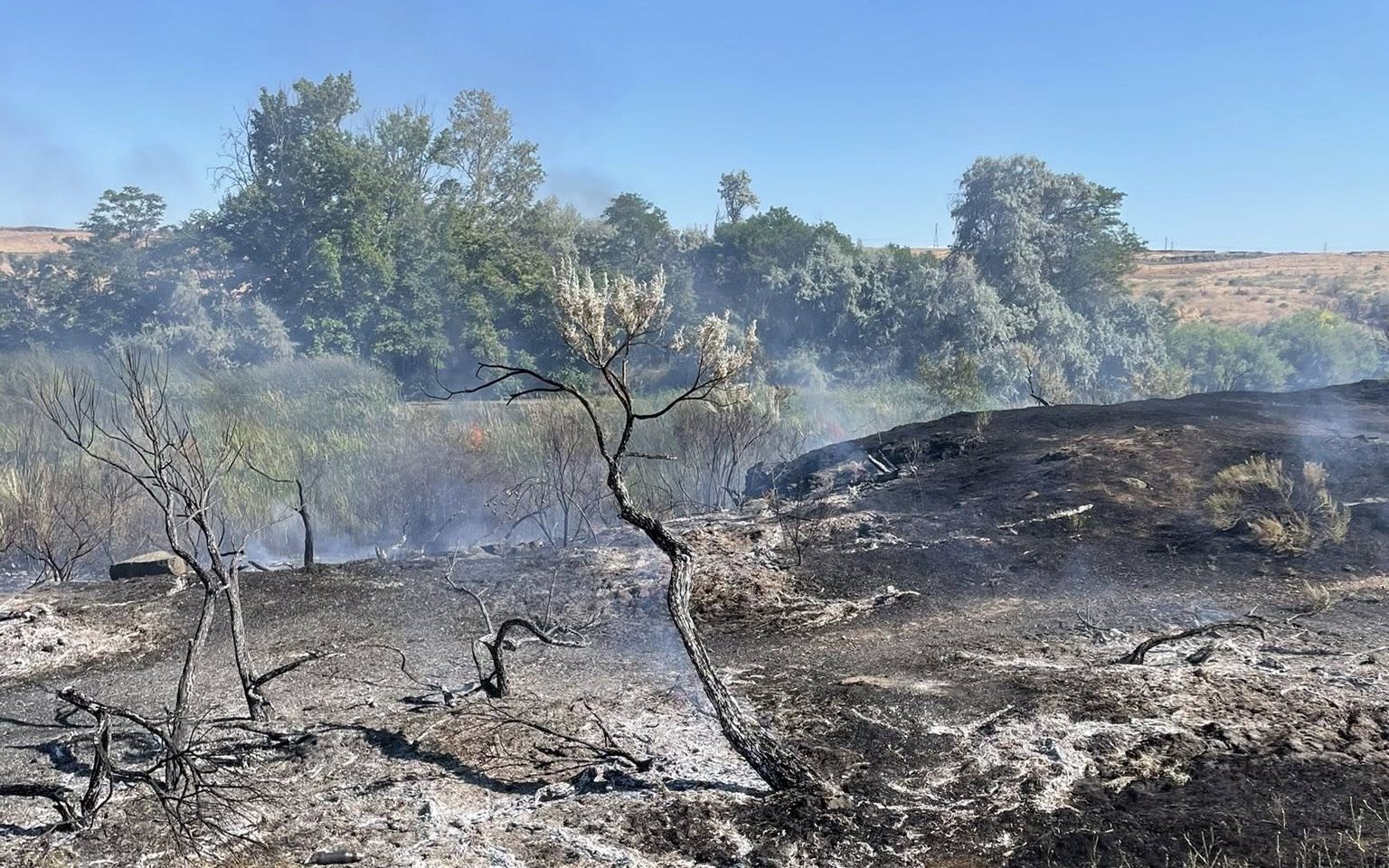He protested in Portland for 7 nights straight. Then he got coronavirus
Published 5:30 pm Sunday, June 14, 2020

- Protesters continue marching and demonstrating in Portland, Ore., on June 5, 2020, against racial injustice and police brutality, in response to the death of George Floyd, a black man killed by police in Minneapolis.
PORTLAND — Ethan Snyder felt exhausted last Friday as he took to the streets for a seventh straight night. He figured a week of protesting police brutality and systemic racism alongside thousands of fellow Portlanders would wipe anybody out.
But when his fatigue morphed into a fever, aches and body chills over the next few days, Snyder, 19, decided he should get tested for COVID-19.
He believes the positive result that came Tuesday stems from the many hours he spent marching, chanting and avoiding tear gas, often among throngs of tightly packed strangers.
“It’s the most likely reason why I have it,” said Snyder, a Franklin High School graduate who now studies ecology at Washington University in St. Louis.
It’s a scenario protesters and health officials across the country are closely watching and waiting to see how the mass gatherings, lack of social distancing and clouds of gas and smoke play out in local coronavirus caseloads.
It appears thus far that only a small handful of participants have fallen ill with the virus in Portland.
According to Multnomah County health officials, fewer than five coronavirus cases reported to the county have involved patients who said they attended a protest before testing positive.
“And I’m one of them,” Snyder said. “That’s kind of crazy.”
He’s recovering at his family’s home in Southeast Portland’s Richmond neighborhood.
State and local health officials have noted that some infected with COVID-19 may be reluctant to disclose their protest activity with the public health investigators who follow up on their cases, creating an undercount.
They’ve also acknowledged that more cases linked to demonstrations could continue to emerge in the coming days.
That uncertainty comes as a growing number of new COVID-19 infections and hospitalizations linked to the virus in Multnomah County stopped Gov. Kate Brown from allowing the county to reopen Friday.
Jennifer Vines, Multnomah County’s lead health officer, acknowledged that those increases lag reality on the ground.
“What we’re seeing now is the result of viral transmission that happened days if not weeks ago, so we’re continually behind in trying to figure out where we’ve been and where we’re going,” she said.
For Snyder, participating in the racial justice movement sweeping across Oregon and the rest of the U.S. has been worth the risk and subsequent illness.
“I’d rather have gone and gotten sick than not gone at all,” he said.
He joined the protests May 30, one night after peaceful demonstrations over the death of George Floyd, an African American man who died under the knee of a Minneapolis police officer, turned into riots, looting and arrests downtown.
In the days that followed, he marched on the Burnside Bridge, listened to speakers in Pioneer Courthouse Square and gathered with others near the Justice Center.
Snyder said he took measures to avoid contracting the virus. He kept to a small group of friends and tried to maintain distance from others. Face coverings were a must.
“I had a mask on the whole time,” he said.
The friends who protested alongside Snyder, including his girlfriend, have since tested negative for coronavirus, he said. So has his mother.
His father, who is awaiting a COVID-19 test result, and sister have not shown any symptoms of the illness.
Snyder believes that enough protesters are being cautious enough to keep the risk of transmission low.
“It seems like what people are doing is largely working,” he said. “I don’t think there’s anything drastic that needs to change among those who are protesting.”
In fact, Snyder plans to join them again after he recovers.
“As soon as I’m able to go back I will,” he said.
This article was originally published by The Oregonian/OregonLive, one of more than a dozen news organizations throughout the state sharing their coverage of the novel coronavirus outbreak to help inform Oregonians about this evolving heath issue.






